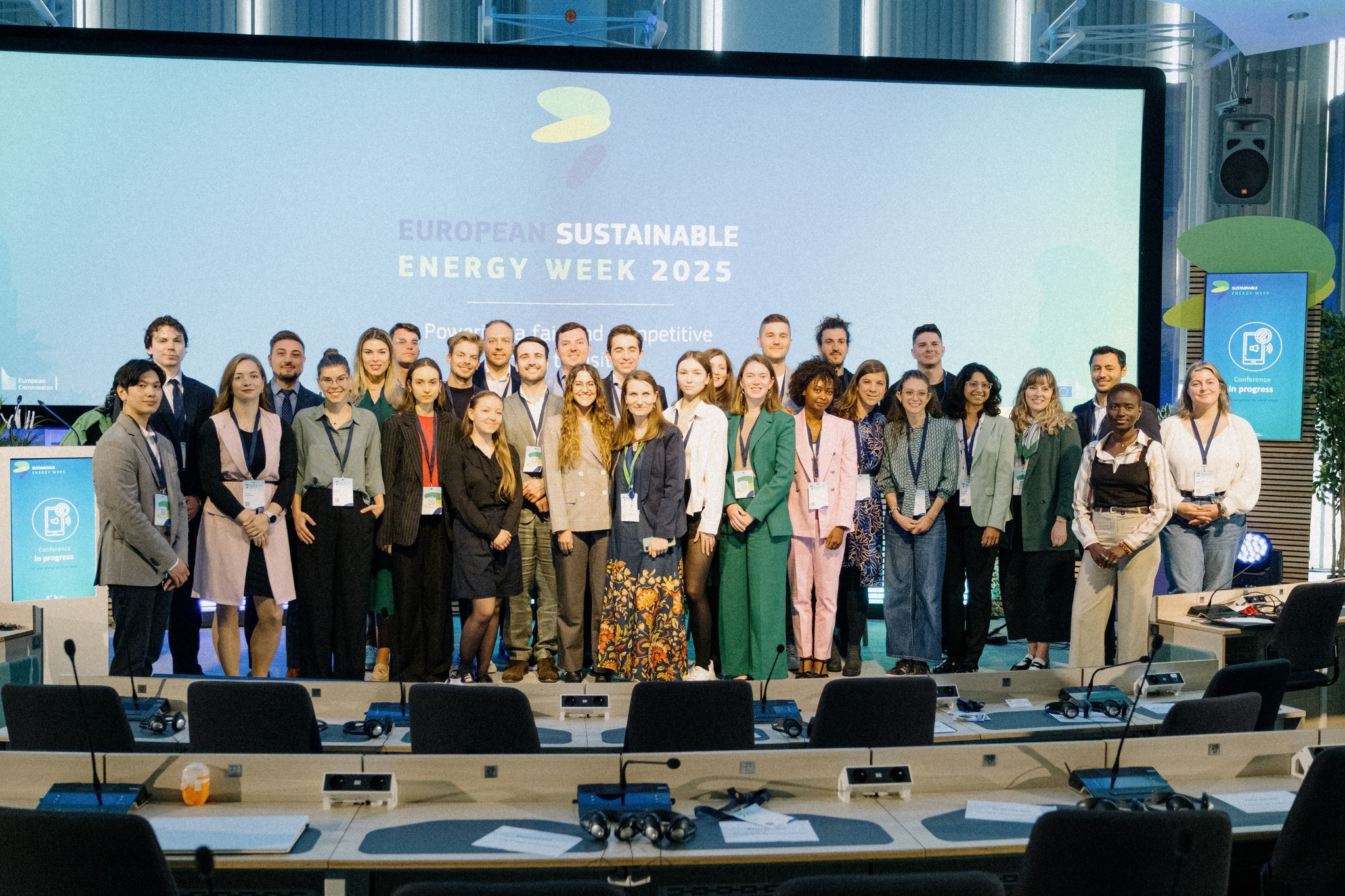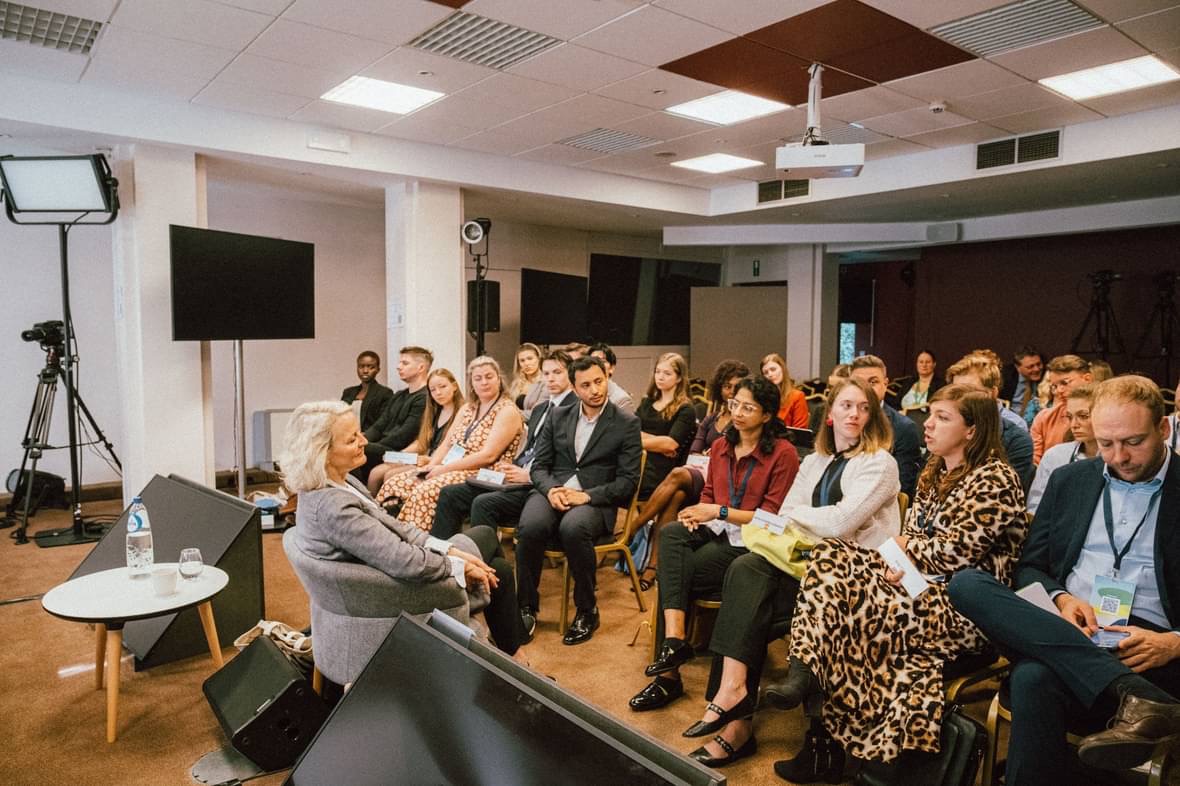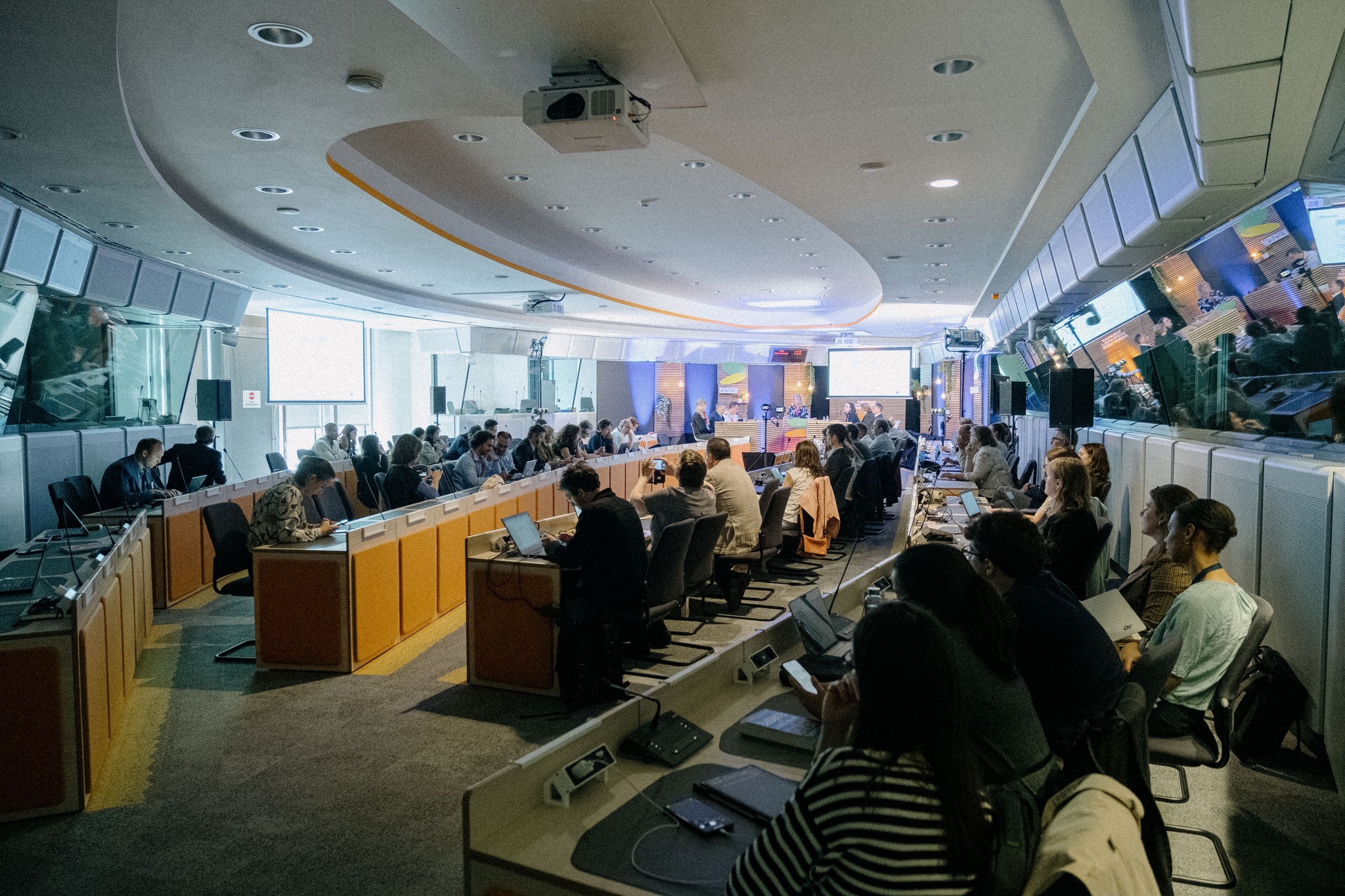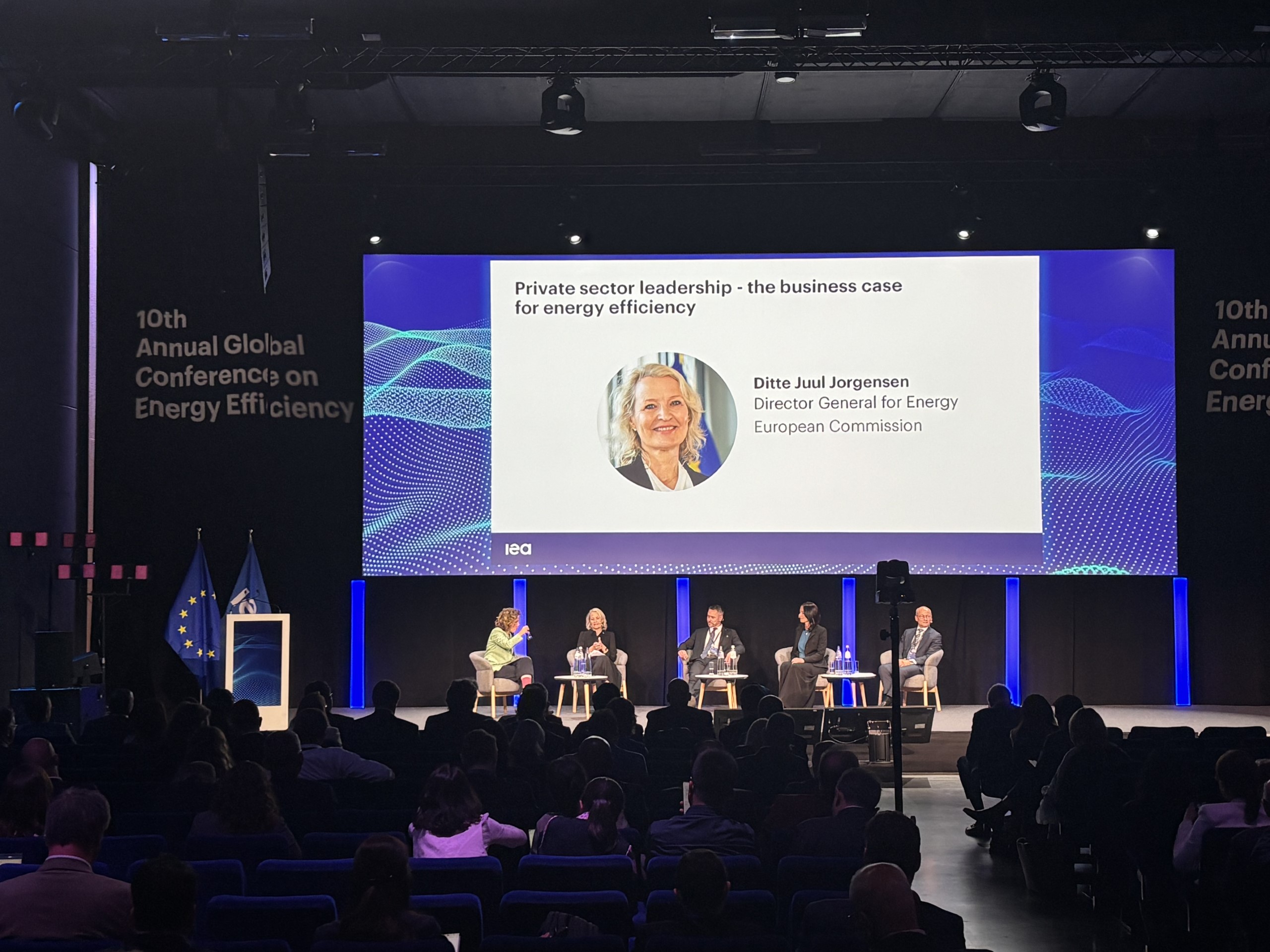03.07.2025
Youth for a Fair and Sustainable Energy Future!
At IRI UL, we are proud to support our colleague Ana Tisov in her role as a Young Energy Ambassador (YEA) during the EU Sustainable Energy Week 2025 and the 10th International IEA Conference on Energy Efficiency held in Brussels this June.
As emphasized in his address by the European Commissioner for Energy and Housing Policy, Dan Jørgensen, the inclusion of young people is crucial for a successful energy transition. Not as a symbolic future, but as active co-creators already today. The transition to a sustainable energy system requires a transformation of values and mental frameworks — and it is precisely this that younger generations bring. Ana, as one of 30 selected young ambassadors, connected with experts from all over Europe and actively contributed to discussions at the highest level. At the conclusion of the events, she highlighted three key messages that we at IRI UL also carry at the core of our work:
1️⃣Clean energy means resilience
Local, renewable, and decentralized energy production is not only more sustainable, but also cheaper and more resilient to geopolitical shocks. European energy systems must become more interconnected and based on solidarity. Our Department for Sustainable Energy Solutions is developing solutions in this direction for integrating renewable sources into energy infrastructure.
2️⃣ Knowledge, participation, and awareness as the foundation of the transition
The energy transition is not merely a technical challenge, but also a social one. A successful transition requires an informed, involved, and empowered society. Energy communities, One-Stop Shops (Renov-AID – IRI UL), and local initiatives have already shown positive impact, but they need to be expanded and systematically supported. At the Department for Applied Social Sciences, we are developing models for involving citizens, stakeholders, and municipalities in energy strategies, as well as monitoring behavioural changes and creating tools for energy literacy.
3️⃣ Efficiency is not enough – sufficiency as a key principle
If we truly want to reduce environmental impact and improve social well-being, we must go beyond merely improving efficiency and introducing renewable energy sources. We need sufficiency, meaning a change in consumption patterns and spatial use. The Intergovernmental Panel on Climate Change (IPCC) defines sufficiency as a set of measures and daily practices that prevent demand for energy, raw materials, land, and water, while ensuring well-being for all within planetary boundaries (IPCC, 2022, AR6 – WGIII). At the conference, Ana openly raised the question of how the European Commission will include this concept in strategic planning, which the leadership of the Directorate-General for Energy acknowledged as a field where the challenges remain primarily political and communicational. At the Department for Efficiency and Built Environment, we are convinced that sufficiency requires more pilot projects that demonstrate the positive impact of sufficiency measures on energy and spatial use, as well as the involvement of different local-level stakeholders as policy shapers. In piloting sufficiency in concrete projects in the built environment in Slovenia, we also wish to play an important role within our department.
We are grateful for the opportunity to co-create as an institute in projects and discussions that significantly guide the European energy future. IRI UL remains committed to research and the development of solutions, for a future that will be just and sustainable.




